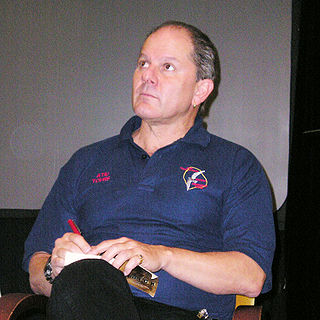A Quote by Studs Terkel
Cannot Hannah Arendt's 'banality of evil' be subject to transposition: the evil of banality?
Related Quotes
Hannah Arendt in her study of totalitarianism borrowed from Immanuel Kant the concept of radical evil, of evil that's so evil that in the end it destroys itself, it's so committed to evil and it's so committed to hatred and cruelty that it becomes suicidal. My definition of it is the surplus value that's generated by totalitarianism. It means you do more violence, more cruelty than you absolutely have to to stay in power.
... In contrast to the "banality of evil," which posits that ordinary people can be responsible for the most despicable acts of cruelty and degradation of their fellows, I posit the "banality of heroism," which unfurls the banner of the heroic Everyman and Everywoman who heed the call to service to humanity when their time comes to act. When that bell rings, they will know that it rings for them. It sounds a call to uphold what is best in human nature that rises above the powerful pressures of Situation and System as the profound assertion of human dignity opposing evil.
As we have come to understand the psychology of evil, we have realized that such transformations of human character are not as rare as we would like to believe. Historical inquiry and behavioral science have demonstrated the "banality of evil" -- that is, under certain conditions and social pressures, ordinary people can commit acts that would otherwise be unthinkable.
When one has once accepted and absorbed Evil, it no longer demands the unfitness of the means. The ulterior motives with which youabsorb and assimilate Evil are not your own but those of Evil.... Evil is whatever distracts. Evil knows of the Good, but Good does not know of Evil. Knowledge of oneself is something only Evil has. One means that Evil has is the dialogue.... One cannot pay Evil in installments--and one always keeps on trying to.































